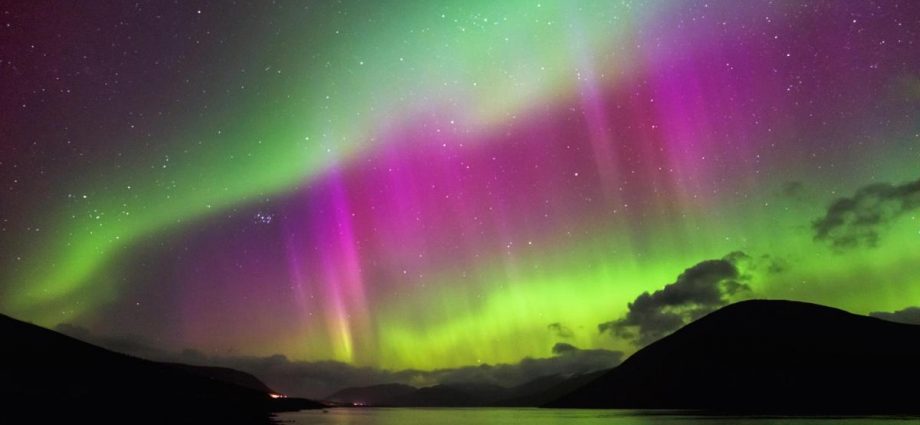So far, March has seen the arrival of the Blood Moon as well as an extraordinary lunar eclipse last week.
If you want to catch a glimpse of the Northern Lights this weekend, here is everything you need to know.
Northern Lights to be visible over the UK tonight
Discussing the arrival of the Northern Lights to the UK, the Met Office said: “A coronal mass ejection is expected to arrive at Earth on 23 Mar.
“This will likely bring visible aurora to Scotland and perhaps parts of Northern England Sunday night where skies are clear.
“There is a continuing chance of aurora sightings at times across northern Scotland this coming week, given clear night-time skies.
“This is due to further possible weak coronal mass ejections glances, along with another faster stream of solar winds arriving later mid-week.”
What causes the Northern Lights?
The Royal Museums Greenwich explained: “Solar storms on our star’s surface give out huge clouds of electrically charged particles. These particles can travel millions of miles, and some may eventually collide with the Earth.
“Most of these particles are deflected away, but some become captured in the Earth’s magnetic field, accelerating down towards the north and south poles into the atmosphere. This is why aurora activity is concentrated at the magnetic poles.”
Royal Observatory astronomer, Tom Kerss added: “These particles then slam into atoms and molecules in the Earth’s atmosphere and essentially heat them up.
“We call this physical process ‘excitation’, but it’s very much like heating a gas and making it glow.”

The best places to the Northern Lights
The Royal Museums Greenwich said: “The aurora borealis can be seen in the northern hemisphere, while the aurora australis is found in the southern hemisphere.
“While the best places to see the aurora are concentrated around the polar regions, the aurora borealis can sometimes be seen in the UK.
“The further north you are the more likely you are to see the display – but heightened solar activity has meant that the northern lights have been seen as far south as Cornwall and Brighton.
“The conditions do still need to be right however. Dark and clear nights, preferably with little light pollution, offer the best chance of seeing the aurora.”


